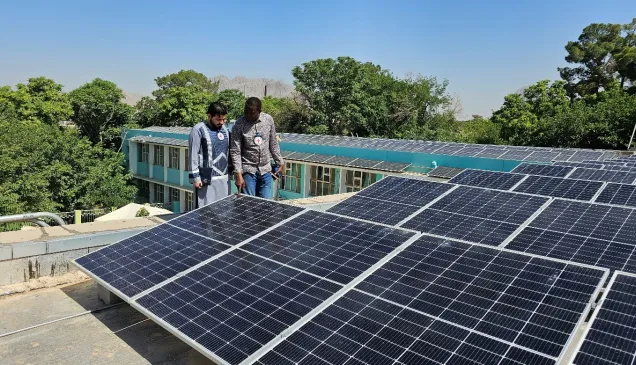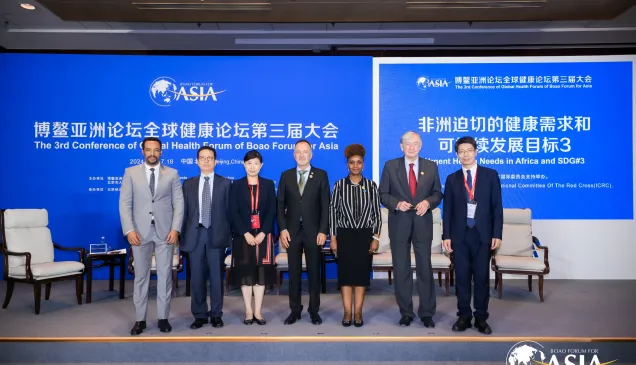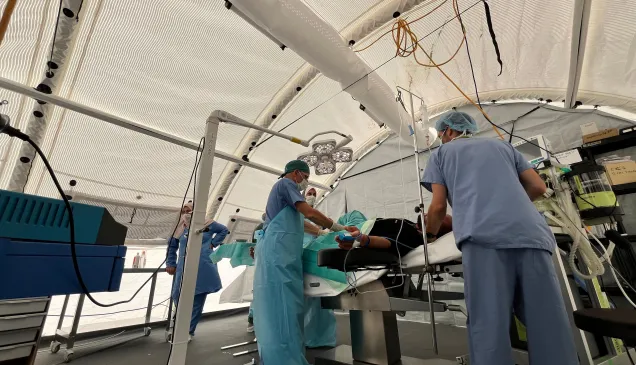World Humanitarian Day 2020: Respect and protect health workers in the COVID-19 pandemic
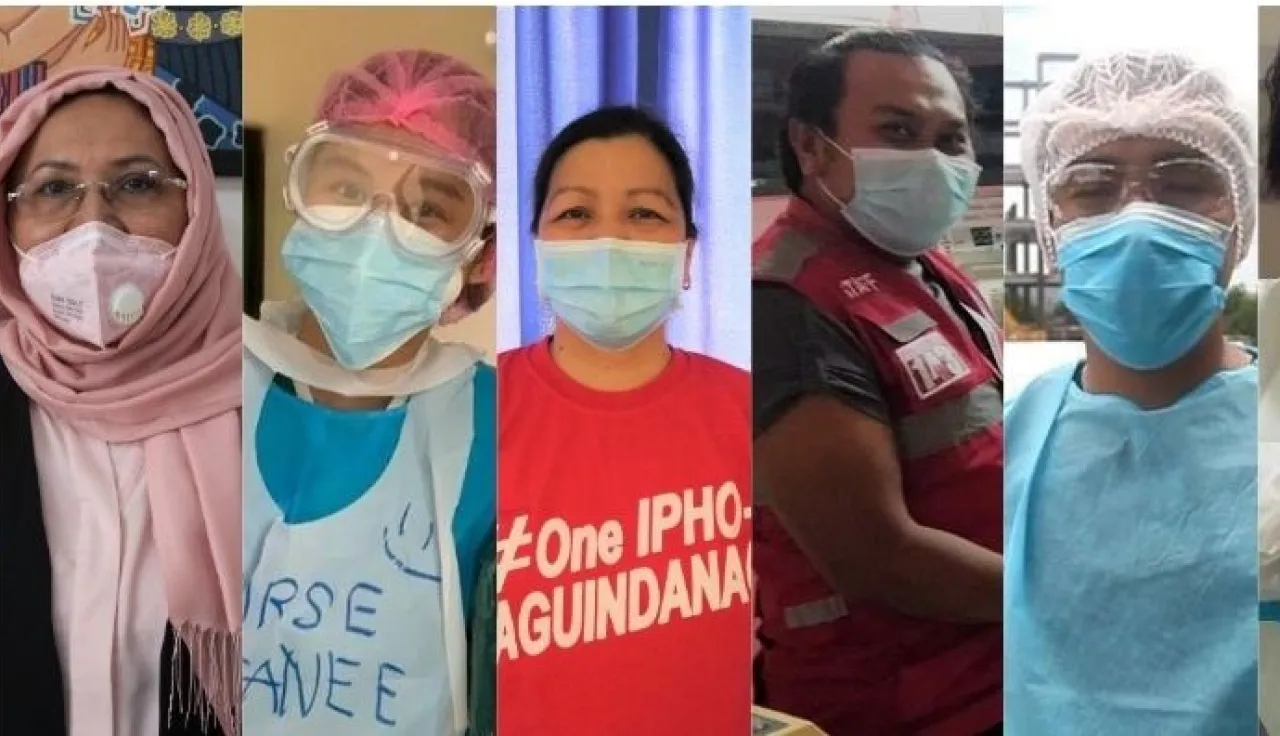
When we ensure protection and respect for health workers, we also ensure that people who need their help receive continuous care. This is all the more important in the COVID-19 pandemic, which has put additional pressure on health workers and health care systems.
Dr Potri Disomimba Ali, chief of Tamparan District Hospital, Lanao del Sur
As a doctor in charge of a hospital, Potri is used to long hours and the fatigue and stress that comes with her job. In 2017, Potri and her colleagues at the Tamparan District Hospital served people who were affected by the Marawi conflict. Now they are dealing with the threat of COVID-19, which she says has added to the heavy load carried by health workers like her.
“The ones mostly affected by COVID-19 are the vulnerable sectors of society – women, the elderly, and young children," she said. "I pity these children as they seem clueless of what’s happening around. It’s hard to explain to them why playing and running out in the field are now restricted. Just like how unexpected the Marawi siege was, the COVID-19 pandemic showed how tomorrow is not guaranteed. That at any time, something bad may happen and we need to be prepared. Right now, cooperation is needed.”
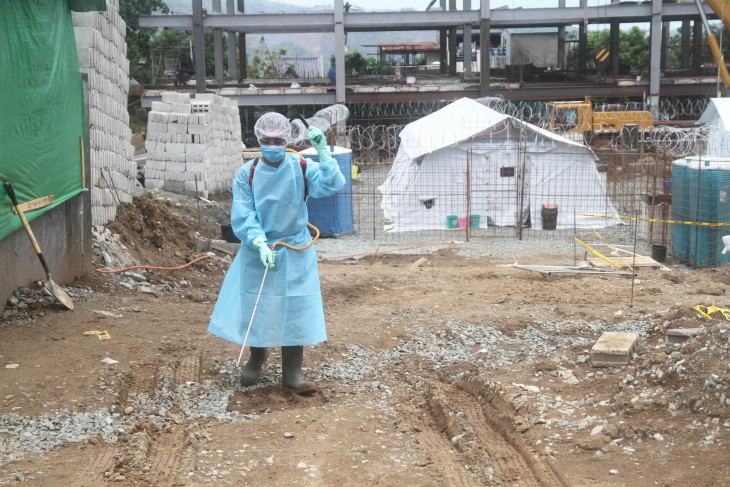
JO1/Trainee Michael D Carriaga, hygienist at the BJMP NCR COVID-19 isolation facility
Michael used to be a trainee at the Bureau of Jail Management and Penology regional office before being deployed to the BJMP’s COVID-19 isolation facility in Payatas village, Quezon City. As a hygienist, he carefully disinfects the isolation facility to prevent further spread of the disease.
“We’ve learned that just because they are detainees, it doesn’t mean they do not have a right to health care," he said. "They need medical attention like everyone else. To my fellow front-line workers, don’t lose hope. Always pray. Trust in yourself and let’s help each other.”
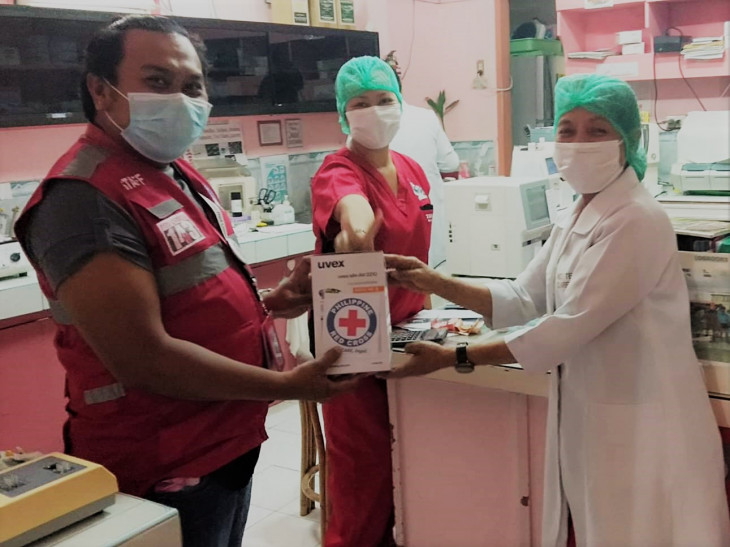
Alaudin Salik Masabpi, registered nurse and Philippine Red Cross Cotabato City-Maguindanao chapter service representative for disaster management; focal person for health services
Alaudin believes in having the right attitude in fighting the pandemic. He has personally become more observant and conscious of what is going on around him and how he interacts with other people. Whenever he goes house-to-house to extract testing samples for laboratories, particularly from children and the elderly to minimize their risk of exposure, Alaudin strictly follows infection prevention measures like physical distancing and wearing a mask.
"Our role as humanitarian frontliners is vital amidst this pandemic," he said. "I am grateful despite the risk of being infected because I can serve my countrymen. My passion as a health worker and as a humanitarian worker is unstoppable. Being on the front line to deliver quality care doesn't mean I am a hero, but I have sworn to be a responsible nurse, especially in times of disaster like the COVID-19 pandemic."
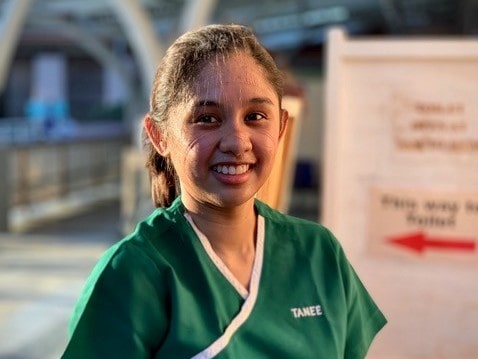
Natalya Frances Sousa, RN, COVID-19 unit nurse, Zamboanga City Medical Center (ZCMC)
In April 2020, Natalya was assigned to the COVID-19 ward of the Zamboanga City Medical Center (ZCMC), a government-run facility that caters to COVID-19 patients in the Zamboanga region. She is now back to working at the ZCMC's non-COVID-19 orthopedic unit, but she remains to be an infection-control nurse. She makes decisions and plans how to best prevent virus transmission among patients. Natalya's biggest worry about the pandemic is its impact on the mental well-being of patients and health workers like her, who have experienced discrimination out of others' fears that they are carriers of the virus.
"Through this pandemic, I saw the essence of nursing – that is to nurture our patients and to be their light in times of darkness and vulnerability," she said. "This experience has opened my eyes and heart more to always do magis (more) and to take the extra mile but still with utmost precaution. Just taking time to talk to our patients even for a little while makes a huge impact on their perception of life and that, I think, is what motivates them to aim for healing and wellness."

Dr Gina Macapeges, technical services chief of Maguindanao Integrated Provincial Health Office
Although she does not directly provide care for COVID-19 patients, Gina is responsible for making sure that health workers assigned to communities are performing well and delivering the necessary health services. When the pandemic started, Gina was worried that the health workers in barangays (villages) would also be asked to stay home, leaving small communities with no one to depend on. Months into the pandemic, Gina encourages her fellow health workers to remain hopeful and reminds them of their duty to provide care to those in need.
"Sometimes there are health workers who would say 'Doc, we might get infected.' Of course, who is not afraid? We are all scared... (especially if we see how many doctors have died, how many nurses have died. It's scary. But we should not succumb to our fear," she said.
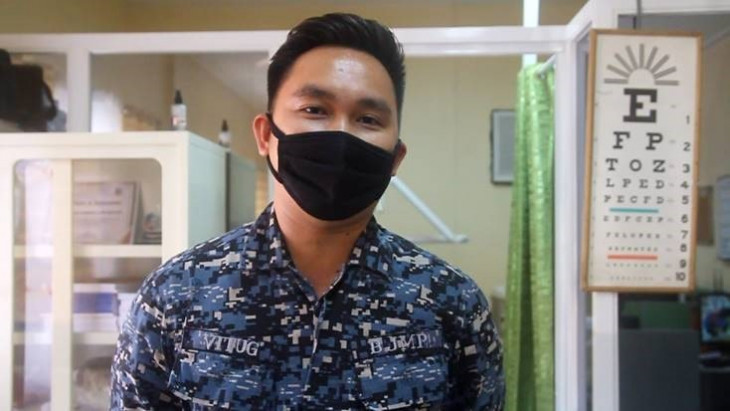
JO1 Angel G Vitug Jr., jail nurse from Guagua District Jail, Pampanga
Angel has been a jail nurse for ten years, but this is the first time he's dealing with an illness like COVID-19. He and his colleagues have experienced extreme stress and anxiety and constantly longed to be with their families while they were quarantined in jail. Angel volunteered to be a nurse at the BJMP isolation facility in San Fernando, Pampanga, because he wanted to help more people, and at the same time, to learn more about infectious diseases. He believes it is the sworn duty of jail nurses like him to take care of sick detainees.
"With my job, it's important to have trust in oneself and to not be pessimistic," he said. "I think we can take on any challenge that God gives us. You'll be able to tell yourself later that you survived this because you didn't give up and you did the best you could. What I can advise my fellow front liners is to always have faith in God, trust in your abilities, and never doubt yourself. Your individual contribution can help in fighting the pandemic. Be brave, we can do this."
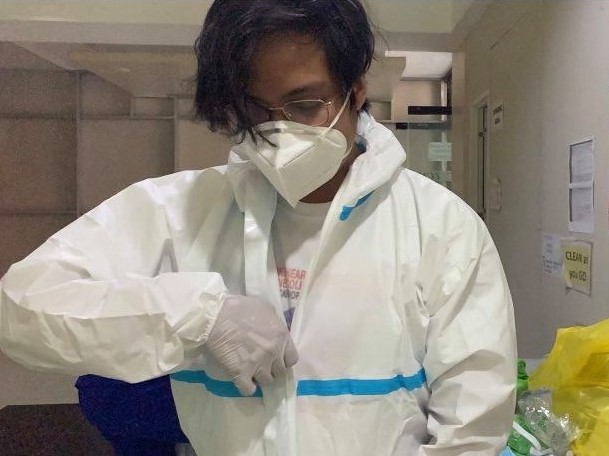
Dr Kevin Paul Enriquez, medical doctor at the Zamboanga City Medical Center COVID-19 ward
A medical resident-in-training, Kevin is one of the doctors who are assigned to do rounds at the COVID-19 ward of the Zamboanga City Medical Center. To limit the risk of transmission among health care workers, Kevin and his fellow doctors must go on hospital duty for seven days straight, followed by a period of quarantine. They are brought back to do rounds once they test negative for the disease. Because of his busy schedule and the days spent away in quarantine, Kevin misses his family a lot. He worries about their safety, especially as the number of infections continue to rise.
“This pandemic has taught me many lessons, particularly the value of perseverance," he said. "No one was ready for the pandemic, and it hit hard when least expected. Further into the course of this crisis, more challenges will arise. Adjustments will be constant. As humans who have personal lives and families, we are equally vulnerable to the threats of this pandemic both psychologically and emotionally. As health care workers, our task is to remain firm and flexible to the changes that are yet to be encountered. In finding fulfillment in the things we do, we gain joy and a deeper desire to reach out to our patients and to keep going.”


